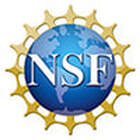Bioinformatics/Phylogenetics of Peracarids Workshop
Dates: May 29 to June 1, 2023
Location: NIWA (Wellington, New Zealand)
Cost: Free to ICC attendees!
Application deadline: ~1 May, 2023(?)
After the exciting tenth International Crustacean Congress (www.icc10.org ), there is bonus added content for the peracarid and peracarid-curious community. Following the ICC10 there will be a 4 day (29th May - 1st June) combined amphipod and bioinformatics of peracarids workshop. This workshop will be held in Wellington (at NIWA) aimed at bringing together established researchers with those earlier in their career.
This page is here to sell you on the Bioinformatics/Phylogenetics of Peracarida stream of the workshop. If you are keen on the Amphipoda stream of the workshop, please visit: https://www.eventbrite.com/e/bioinformatics-of-peracarida-and-amphipoda-workshop-tickets-425529780027
The four-day bioinformatics workshop stream will be led by Drs. Kevin Kocot (University of Alabama) and Sarah Gerken (University of Alaska Anchorage) after the ICC from 29 May to 1 June 2023. This workshop is aimed at individuals with at least a general background in molecular genetics work wanting to advance their practical bioinformatic skills. Lectures will cover the theory behind molecular laboratory and computational techniques involved in working with sequence data from peracarids and other crustaceans (but, realistically, any eukaryote). Hands-on computer-based exercises will focus on developing familiarity and skills in the Linux command line and computational tools involved in sequence data analysis including Sanger sequence data (e.g., DNA barcodes) and high-throughput sequence data (e.g., Illumina, PacBio, etc. genome and transcriptome data).
Participants will need a laptop computer running Windows 10/11, MacOS, or Linux.
Tentative list of topics to be covered:
How to work in the Linux command line
Advanced command line tools (sed, awk, grep, etc.) and shell scripting
High performance computing
Specimen preservation, DNA extraction, PCR, & Sanger sequencing
Downloading data from public databases
Multiple-sequence alignment
Primer design & PCR optimization
High-throughput sequencing platforms
RNA extraction, cDNA synthesis, and transcriptomics
Transcriptome assembly & gene expression quantification
Genome assembly & QC
Molecular phylogenetics
Phylogenomics using mitochondrial genomes and transcriptomes
Once we have a list of interested parties, we will poll the group to refine this list to best meet the needs and interests of the group.
Questions about the bioinformatics stream?
Please contact Kevin Kocot at [email protected] with any questions about the bioinformatics stream of the workshop.
Ready to express your interest?
Fill out the form here: https://www.eventbrite.com/e/bioinformatics-of-peracarida-and-amphipoda-workshop-tickets-425529780027
Email: [email protected]
Dates: May 29 to June 1, 2023
Location: NIWA (Wellington, New Zealand)
Cost: Free to ICC attendees!
Application deadline: ~1 May, 2023(?)
After the exciting tenth International Crustacean Congress (www.icc10.org ), there is bonus added content for the peracarid and peracarid-curious community. Following the ICC10 there will be a 4 day (29th May - 1st June) combined amphipod and bioinformatics of peracarids workshop. This workshop will be held in Wellington (at NIWA) aimed at bringing together established researchers with those earlier in their career.
This page is here to sell you on the Bioinformatics/Phylogenetics of Peracarida stream of the workshop. If you are keen on the Amphipoda stream of the workshop, please visit: https://www.eventbrite.com/e/bioinformatics-of-peracarida-and-amphipoda-workshop-tickets-425529780027
The four-day bioinformatics workshop stream will be led by Drs. Kevin Kocot (University of Alabama) and Sarah Gerken (University of Alaska Anchorage) after the ICC from 29 May to 1 June 2023. This workshop is aimed at individuals with at least a general background in molecular genetics work wanting to advance their practical bioinformatic skills. Lectures will cover the theory behind molecular laboratory and computational techniques involved in working with sequence data from peracarids and other crustaceans (but, realistically, any eukaryote). Hands-on computer-based exercises will focus on developing familiarity and skills in the Linux command line and computational tools involved in sequence data analysis including Sanger sequence data (e.g., DNA barcodes) and high-throughput sequence data (e.g., Illumina, PacBio, etc. genome and transcriptome data).
Participants will need a laptop computer running Windows 10/11, MacOS, or Linux.
Tentative list of topics to be covered:
How to work in the Linux command line
Advanced command line tools (sed, awk, grep, etc.) and shell scripting
High performance computing
Specimen preservation, DNA extraction, PCR, & Sanger sequencing
Downloading data from public databases
Multiple-sequence alignment
Primer design & PCR optimization
High-throughput sequencing platforms
RNA extraction, cDNA synthesis, and transcriptomics
Transcriptome assembly & gene expression quantification
Genome assembly & QC
Molecular phylogenetics
Phylogenomics using mitochondrial genomes and transcriptomes
Once we have a list of interested parties, we will poll the group to refine this list to best meet the needs and interests of the group.
Questions about the bioinformatics stream?
Please contact Kevin Kocot at [email protected] with any questions about the bioinformatics stream of the workshop.
Ready to express your interest?
Fill out the form here: https://www.eventbrite.com/e/bioinformatics-of-peracarida-and-amphipoda-workshop-tickets-425529780027
Email: [email protected]
|
This course is supported by Alabama Center of Excellence (ALCoE) grant #28775 to Drs. Kelly Dorgan, Kevin Kocot, and Ken Halanych "Meiofaunal diversity as a tool for understanding and monitoring northern Gulf of Mexico environments" and National Science Foundation grant #DEB 0918499 to Kevin M. Kocot entitled "CAREER: Revolutionizing Biodiversity and Systematics Research on Aplacophora (Mollusca) and Training the Next Generation of Invertebrate Systematists." Any opinions, findings, and conclusions or recommendations expressed in this material are those of the author(s) and do not necessarily reflect the views of ALCoE or the National Science Foundation.
|



